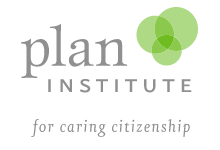 What differentiates a social entrepreneurship from the traditional entrepreneurial venture? A social entrepreneurship is defined as an social-mission driven enterprise that applies market base strategies to achieve a social purpose. The Planned Lifetime Advocacy Network (PLAN), a Canadian organization that helps families in securing a future for disabled relatives, is the embodiment of such a venture.
What differentiates a social entrepreneurship from the traditional entrepreneurial venture? A social entrepreneurship is defined as an social-mission driven enterprise that applies market base strategies to achieve a social purpose. The Planned Lifetime Advocacy Network (PLAN), a Canadian organization that helps families in securing a future for disabled relatives, is the embodiment of such a venture.
Social entrepreneur and company president Al Etmanski had a vision: to provide family members with a disability access with opportunities for financial stability, independence, and long-term friendship following the death of a parent or primary caregiver. PLAN Institution was designed as an affiliated resource center that provides books, online seminars, mentoring, and counselling services for PLAN partners. A major component of PLAN’s mission involves the creation of social networks in which individuals come together to establish relationships with a disabled person and provide support.
Al Etmanski’s innovative social mission stimulated the creation of additional iniatives. Among these, the Registered Disabilities Savings Plan allows disabled Canadian citizens to defer taxes and increase their savings. However, in order to truly be considered a social enterprise, PLAN must operate in accordance with a traditional business model. It succeeds in doing so by generating revenue through the sale of memberships, subscriptions, seminars, books, and other products. However, PLAN’s underlying goal is not consistent with the traditional corporate aim of maximizing profit. Financial returns come second to Etmanski’s social mission to provide disabled individuals with the resources to participate in decision-making, contribute to society, and live a long life of familial and financial support.

Categories: